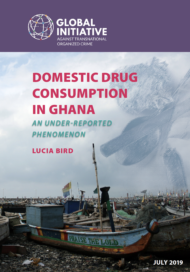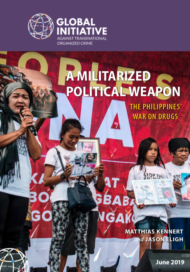Posted on 04 Jul 2019
West Africa’s emergence in the mid-2000s as a transit hub in the international illicit drugs trade and the consequent surge in the quantity of drugs transiting through the region have been well documented. However, the dramatic growth in domestic drug consumption in the countries of this region and the challenges faced by the expanding population of people who use drugs (PWUD) are far less reported. For a long time, commentators suggested that the impact on domestic consumption was minimal, masking a growing phenomenon to the extent that it has been almost invisible in international discourse. There is now growing recognition that the drugs trade has had a far more significant domestic socio-political impact on the region than was first believed, with the increase in drug trafficking undermining governance structures through corruption and illicit financial flows.
The lack of available data, however, prevents us from accurately assessing the prevalence of drug use, and our understanding of the characteristics of the domestic market is therefore limited. This absence of clarity is an obstacle to effectively addressing the growing phenomenon of domestic drug use and has, thus far, meant that the problem has been largely ignored by policy actors.
This report responds to the current apathy of the Ghanaian state and society in general towards the increasing prevalence of drug use in the country. It draws on field and secondary research, tracking drug-consumption patterns and exploring the characteristics of the population of PWUD, as well their treatment by society, to propose a set of recommendations for reducing the harms and risks that PWUD currently face.





